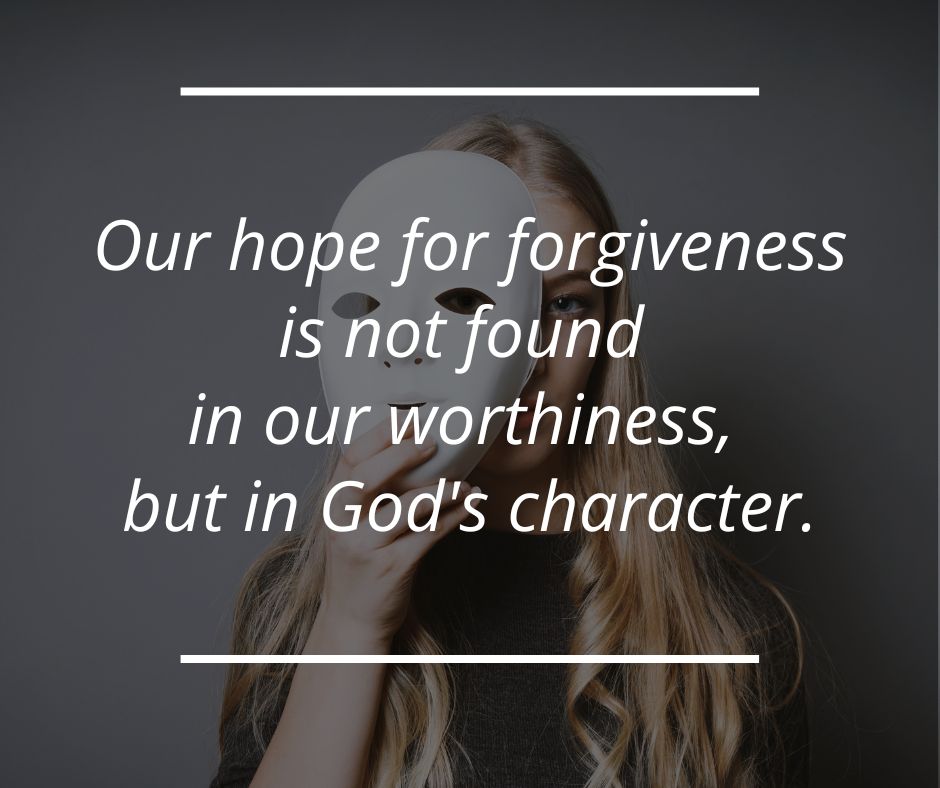From Hiding to Healing: Trade Unworthiness for God's Love and Break Shame's Power Over Youਨਮੂਨਾ


After Nathan confronted David about his sin, David wrote one of the most profound expressions of repentance in Scripture—Psalm 51. This psalm begins with these words:
"Have mercy on me, O God, according to your unfailing love; according to your great compassion, blot out my transgressions. Wash away all my iniquity and cleanse me from my sin."
Notice where David places his hope. He doesn't appeal to his goodness or try to minimize what he's done. Instead, he appeals directly to God's character, His "unfailing love" and "great compassion."
This reveals our third lesson about shame: God's character is the source of our hope for forgiveness.
When we're trapped in shame, we often feel neither good nor worthy of love. That’s how I felt when I looked at my credit card bills and then thought of my parents. It’s the same feeling I’ve felt when I lost my temper with my kids, gave in to lust, or held onto bitterness.
Our hope for forgiveness is not found in our worthiness but in God's character. David identifies two aspects of God's character that he is counting on: God’s unfailing love (“hesed” in Hebrew) and His abundant mercy.
The word “hesed” refers to God's covenant love—the love He gives because of His promise, not because we deserve it. The Hebrew word for "abundant mercy" (rachamim) means "womb love"—the love a mother has for the child she carries. A pregnant mother is constantly aware of the child within her, who causes discomfort, sleepless nights, and bodily changes. Yet she extends mercy because of her love.
There's not a day when I don't need God's mercy. Like that child in the womb, I constantly give God reasons to extend mercy to me. God isn't obligated to love or show mercy to me—He does so because it's His character to love His children like me.
When we approach God for forgiveness, our hope is not that we are good people deserving of forgiveness. Our hope is in God's character. Shame is powerful, but God's character is greater.
If you're carrying shame today, don't hope in your ability to overcome the sin that caused it. Instead, hope in God's character, which is greater than your sin and shame.
This is why Exodus 34:6-7 includes a phrase repeated throughout the Bible. God describes Himself to Moses as "The LORD, the LORD, the compassionate and gracious God, slow to anger, abounding in love and faithfulness, maintaining love to thousands, and forgiving wickedness, rebellion and sin."
Everything about God's self-description points to His character of forgiveness and mercy. Yes, He is just and will not leave the guilty unpunished, but His first and primary characteristic is compassion.
Shame tells us we're unworthy of love and belonging. God's character reveals that, despite our unworthiness, He loves us and desires us to belong to Him. His love isn't based on our perfection but on His perfect character.
Tomorrow, we'll explore how David found freedom from his shame through a powerful yet uncomfortable act - something we can also do today.
ਪਵਿੱਤਰ ਸ਼ਾਸਤਰ
About this Plan

Has your unworthiness kept you from God and others? Ever felt broken beyond repair? In this 5-day journey, discover how King David moved from hiding in shame to healing in God's presence. Through biblical and practical insights and personal stories from Scott Savage, you'll learn to distinguish between shame and healthy guilt, find hope in God's character, and experience true freedom. Start today to exchange unworthiness for God's unconditional love.
More
Related Plans

Renew Your Mind

Inspire 21-Day Devotional: Illuminating God's Word

It's Okay to Worry About Money (Here's What to Do Next)

BEMA Liturgy I — Part D

Receive

Leviticus: Living in God's Holy Presence | Video Devotional

Go

Hebrews: The Better Way | Video Devotional

Connect
